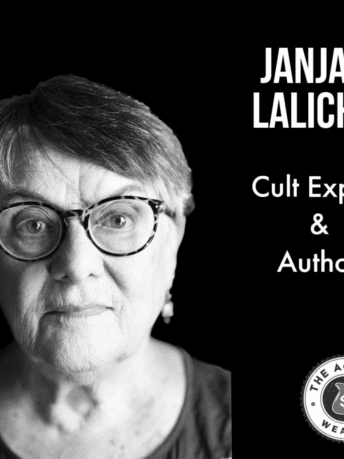What Any Reasonable Person Would Do
by John Allemang
Globe and Mail (Toronto), March 22, 2003, p. F10
Almost as soon as he had been reunited with his daughter Elizabeth, Ed Smart announced that she had been brainwashed. Media outlets quickly picked up on the term, and before long it became the most common way of explaining the 15-year-old’s unlikely transformation.
In less than a year, under the influence of a ranting street preacher, the middle-class, harp-playing Mormon child had been turned into a submissive and compliant follower of a polygamy-promoting zealot. And what seemed stranger than her outward changes was the degree of commitment she showed to the man who kidnapped her from her bed. Given opportunities to escape, she stayed at his side. Confronted by the police, she refused to offer her true identity and end her captivity. Her acts seem completely irrational and out of character. And thus comes the simple explanation: Like POWs who betray the country they were fighting for or cult members who commit suicide for their faith, she must have been brainwashed.
The problem with the concept of brainwashing, however, is that it has no standing in science. “It may sound like a scientific term,” says Dick Anthony, a forensic psychologist in Berkeley, Calif., “but among most psychologists, psychiatrists and sociologists, it tends to be viewed as a crackpot theory used to rationalize prejudice against offbeat groups the public is biased against.” In the Cold War, these would have been the Korean and Chinese Communists who seemed to win over imprisoned Americans to their ideology and way of life — not very successfully, as it later turned out.
Indeed, the frightening term was first popularized in the West in 1951 by a CIA-funded writer named Edward Hunter as a way of magnifying the Red Scare in the McCarthy-era consciousness. More recently, it has become the description of choice to excuse the actions of middle-class cultists who don’t behave according to the rules of their upbringing. “It’s language developed for excusatory accounts,” says University of Nevada sociologist James Richardson. ” ‘Brainwashing’ is a shorthand way of saying things happened to this person and they’re not responsible for them.” Which evokes the case of Elizabeth Smart. Dr. Anthony notes that among those closest to her and in the best position to observe her transformation, there have been two radically different explanations.
Elizabeth‘s uncle described how the girl was subjected to constant monitoring, threats and physical abuse, to the point where she complied with the wishes of her captors — “the way any reasonable person would,” Dr. Anthony says. From this perspective, there is nothing unusual in her actions that demands a deeper explanation. “Plausible threats and physical control usually result in a person being very compliant,” he says, “until the situation changes and she can safely leave.”
Psychiatrists suggest that when a parent such as Ed Smart uses the word “brainwashing” to explain the inexplicable, it may even become a way of avoiding or postponing the harsher truths of what went wrong. “It’s important to be honest about the reality of what may have happened,” adolescent psychiatrist David Fassler, a clinical associate at the University of Vermont. “You can’t just assume that a child will come home and pick up where you all left off.” Brainwashing implies an action external to the person who experiences its effects. The individual will is not involved, in this view, and certainly a devout Mormon father might find it hard to believe that his daughter consented to anything she suffered.
But many of those who study such conversions are determined to show that some aspect of the “irrational” behaviour has been chosen rather than imposed. In its extreme form, this leads to the position that as long as you are not in chains, you can exercise free will. This is the convenient, legalistic way of dealing with the aberrant behaviour of a Patty Hearst or John Walker Lindh.
While it can be argued that Ms. Smart made choices about her behaviour, it is hard to see her as acting freely. For this reason, University of California sociologist Janja Lalich refers to people in Ms. Smart’s position as having “bounded choice.” Within the sealed society they find themselves in, she says, “you must adapt and change to the worldview of the rules and values of the system. You have choices, but they are extremely limited. Nonetheless, however they may seem to outsiders, they are the right choices to be made within that system.”
Far from being brainwashed, in this view, Ms. Smart was doing all she could to survive. Confined in what sociologists call a no-exit situation, Prof. Lalich says, “the only choice she can make is to adapt. Seen from the outside, it looks crazy. But in her position, it is completely logical.”






